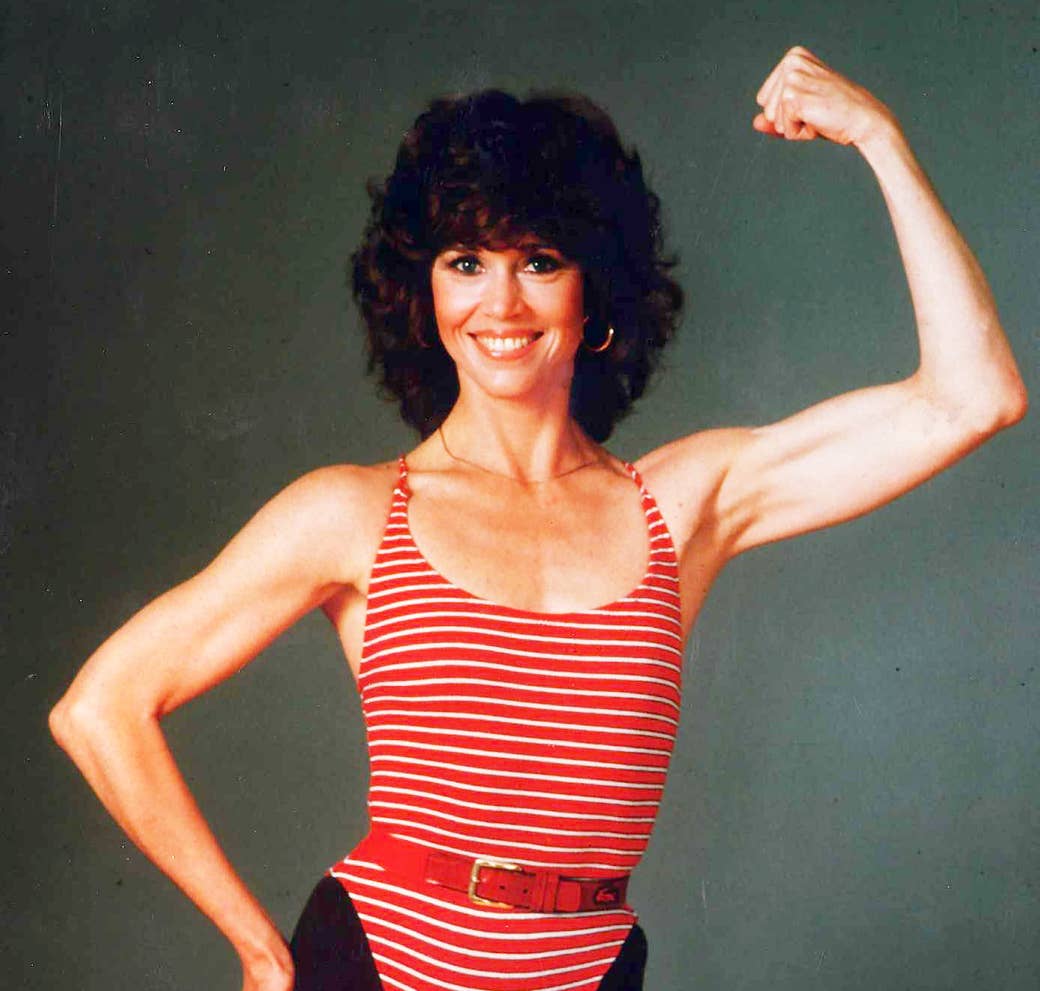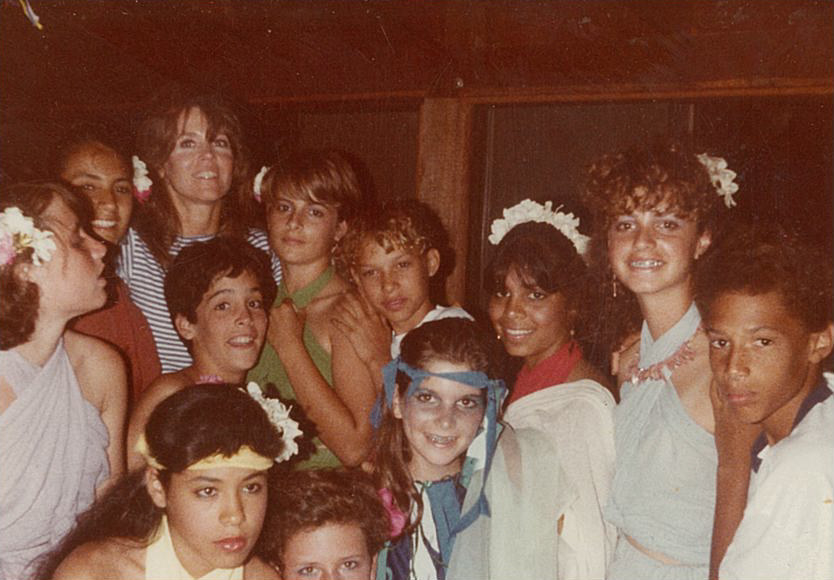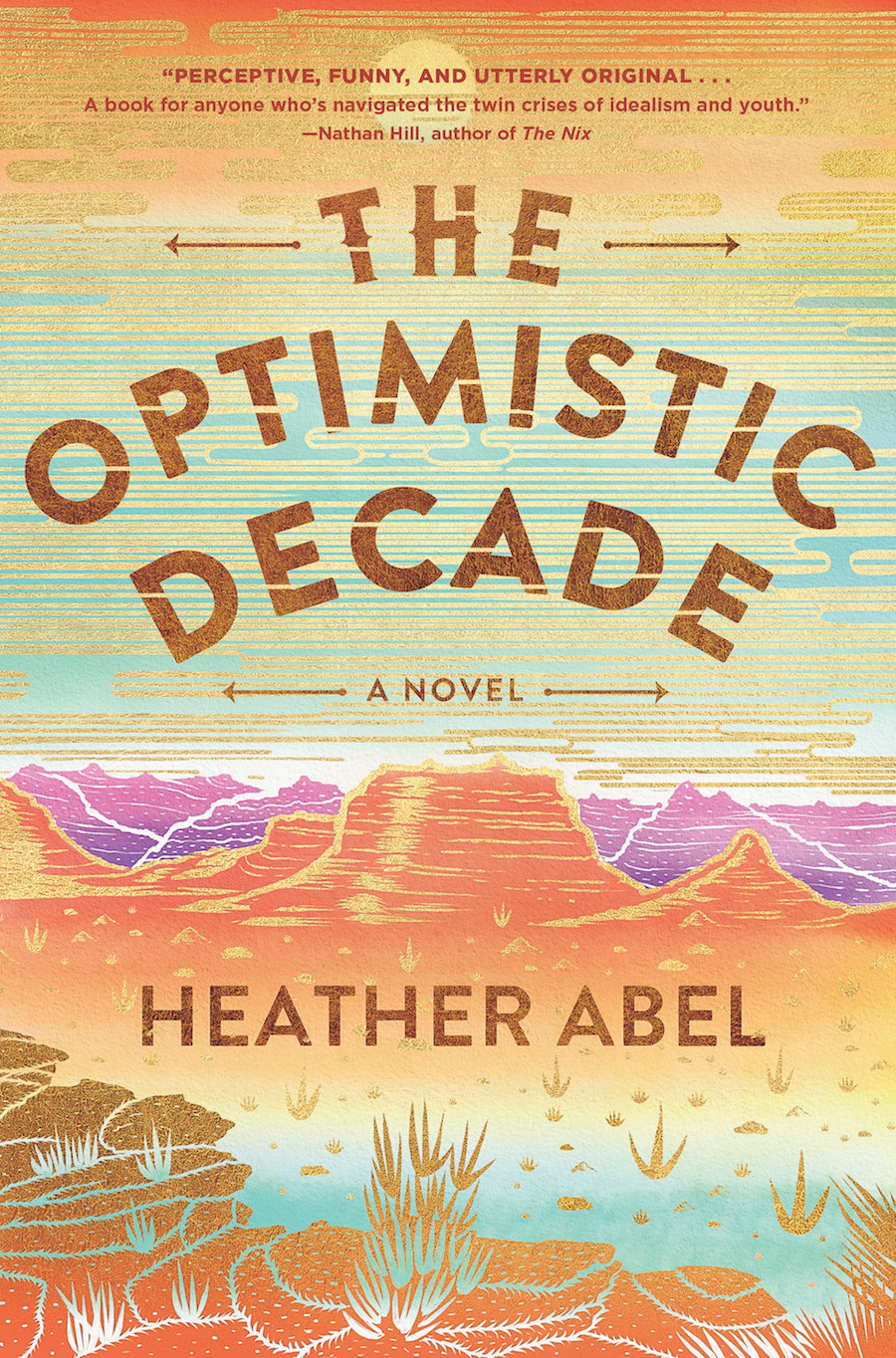
These days, when apocalyptic fears become too loud, I try to remember the summer I was 11 and attended camp at the ranch owned by Jane Fonda and Tom Hayden in the Santa Ynez Mountains. I’d never been to sleepaway camp, and before I left, my mother gave me 14 envelopes, one for every night I’d be away, each containing a white piece of paper on which she’d written a single word in blue ink: No. She said this to me every night at bedtime — No. No was shorthand for “No, there won’t be a nuclear war with Russia while you sleep.” I understood our routine to be preventative as well as therapeutic. By saying these words aloud, we were actually keeping the bombs from dropping, and as I drove north to camp, from Los Angeles to Santa Barbara, I was not at all certain that the letters would accomplish the same.
I was joining the second half of a four-week session, which was how my parents could afford it. Worried about making friends, I had packed the game Boggle to use as an overture. When I arrived at the ranch, Boggle cubes gently rattling against their plastic cage in my bag, I understood how vastly I’d miscalculated. The other girls in my cohort of 11-year-olds, all wearing the tiniest of shorts and tank tops, were fainting, giggling, flailing, grinding pelvises into the floor. Apparently, a secret about a boy — I never learned what it was but understood it was sexual — had sent them into what the counselors were calling mass hysteria. I stood awkwardly while they were given paper bags to breathe into.
I realized then that I had nothing in common with these girls. They thought about sex. I thought about death.
When they were able to talk again, we were tasked with choosing a new name for our cabin. I had the idea of naming ourselves after a heroine, Dolores Huerta or Sojourner Truth, but before I could offer this, they all seemed to land at once on the name "Shades of Grey," and while this was decades before the word "Fifty" would precede that phrase, I still understood that it also somehow referenced sex.
I realized then that I had nothing in common with these girls. They thought about sex. I thought about death. I barely spoke to anyone for the first week, although I was a person who liked to talk, who was known in my family as talking perhaps too much. The counselors called my parents to say that they’d never seen someone so stricken with homesickness.
This was 1983, the frigid heart of the Cold War, and my father had once told me that there would likely be a nuclear war in my lifetime. Unlike all the other girls of Shades of Grey — or so I believed — only I understood that our generation was truly exceptional: We would be the last, and the world would end with us. At home I was always busy thinking about this. I read books about Hiroshima and Nagasaki. I folded paper cranes. I sang peace songs. I wrote poems about Russian children. How did I even have time for summer camp?
I believed I was extraordinary for worrying about what I worried about. And I also believed I lived in an extraordinary time. These two facts together made me fairly certain that I would have an extraordinary death. It was quite a cycle: My worry made me special, my specialness made me worried. I scanned the skies, waiting for it, the mushroom cloud, my extraordinary end.

On the first Friday night of camp, there was an announcement at dinner: Jane was coming! Everyone was excited, even me, although I’d never seen her on a videotape or in a movie. It was her husband, member of the Chicago 8, cowriter of the Port Huron Statement, who was the celebrity in my house. She arrived after we were asleep, and when we woke, we were given a new choice for morning exercise. We could jog around the perimeter of the ranch as usual. Or we could do aerobics with Jane in the meadow.
I chose Jane, but with trepidation. What was aerobics, really? I knew it involved pop music, of the type I only heard at the grocery store, along with gyrating motions and reaching gestures, and how could I do that? My parents listened exclusively to classical music. And while I took ballet, I didn’t know how to dance beyond its strictures, its pliés and tendus. I’d never seen MTV, never attended a school dance. How did people move? Once, at a political meeting with my parents, I’d asked a teenager to teach me. She looked at me sadly. “I guess, if you don’t know, just try to jump in time to the music.”
I realize now what a scared and narcissistic theology I’d come up with. Raised vehemently atheist, I didn’t believe in God, but I believed in surveillance.
I did, however, know about nonviolent civil disobedience. I decided that I would apply it to the situation. I simply wouldn’t do the aerobics. I chose a place in the back of the crowd where nobody could see me standing still. We waited for Jane a long time in our shorts and T-shirts, as all around us crickets were singing in the dry grasses. The morning sun grew strong. I scratched at the constellation of mosquito bites on my legs. An airplane flew overhead, white contrail against the sharp blue sky. I mouthed what I always said when I saw an airplane, “I love you, mom and dad.” These were my final words, spoken in case this was the Russian plane.
I realize now what a scared and narcissistic theology I’d come up with. Raised vehemently atheist, I didn’t believe in God, but I believed in surveillance. I was being watched. My worried thoughts were listened to, my final words would be judged. I was that important.
Finally Jane emerged from the house, looking like sunshine. She was laughing at something the ranch manager was saying to her. He was carrying a silver boom box, and he set it on a rock wall. She took off her robe, revealing a skimpy, bright leotard. But just as she was greeting us, a gaggle of the older girls burst out of the ranch house and ran to join us, standing right behind me, where I couldn’t escape their notice.
The music started. Pat Benatar sang “Hit Me With Your Best Shot,” loud and fuzzy and encouraging. Jane began moving, a wiggle-wiggle of sexiness directed to the mountains looming behind us, the hawks overhead, the crackle of grasses underneath our Reeboks. “Follow along!” she shouted. Despite my plan, I couldn’t stop myself. I became possessed. At first, I simply swayed. Soon, I was reaching my hands to the mountains! to the sea! (as Jane called out). I was timid about moving my hips, unable to isolate them from my knees, my waist, but I began thrusting whatever I could to one side and then the other. I went left when everyone else went right. I squatted when they leaped. I looked ridiculous, but there, with Jane Fonda and the music and the mountains, I no longer cared. I was not the special girl who thought only of death. I was a speck. I was nobody. I was joy. I was a piece of paper with a single word on it: Yes.
The other day, a friend told me that his daughter is so anxious about the possibility of nuclear war with North Korea that she can’t sleep. He asked me what I should tell her. He laughed a little as he said, “I thought that maybe you have some wisdom, you know, because you’re such an expert on that kind of worry.”
I thought of how lovingly and firmly my mother had answered my question each night. No. No. No. Not tonight. But worry is trenchant and wily, able to slip through the balustrades of most any reassurance.
Worry is trenchant and wily, able to slip through the balustrades of most any reassurance.
It makes sense that this generation of children is worried the way we were worried in the 1980s. How could they not feel exceptional? These are exceptional times, we say to them. We’ve never seen anything like this, we say. Or we say nothing to them, because we can’t tear ourselves from the screens on which our extraordinary political drama is unfolding. Perhaps the best we could do would be to read to our children from Annie Dillard’s book For the Time Being. In it she asks: “Is it not late? A late time to be living? Are not our generations the crucial ones? For we have changed the world. Are not our heightened times the important ones? For we have nuclear bombs. Are we not especially significant because our century is?”
Dillard answers simply. No. We’re not crucial; these times are not extraordinary. We are ordinary people in ordinary times. Ordinary life, she goes on to say, has always had plagues, floods, totalitarian extermination, refugees thirsty in the desert. It’s always been pre-apocalypse. “Can the news from dynastic Egypt have been any different?”
I am not saying that we shouldn’t be frightened of our ordinary, frightening times. I’m just saying that when the fright gets too great, when it seems like we are doomed actors on a stage — that to live in 2018 is to live in the final year of all we’ve cared about — we can find a way, for a little while, to step out of the spotlight. We can escape the paralysis of specialness, the anxiety of living in a unique time with its unique annihilation, and we can find our own Jane Fonda, whatever it is that helps us remember the mundane fact that we are still incredibly alive in this moment — as is the world around us. We can see the hawks overhead, feel the brush of dry grasses against our skin, reach to the mountains or the sea. We can become nobody again, for a brief moment, unwatched, unworried.
When the hour was over, the music stopped and we ate graham crackers and juice in the shade. But for me, the spell wasn’t entirely broken. My attention had shifted from the sky — where the planes passed, where the watcher watched me — to the sweat down my back and the soreness in my legs and the people all around me. I laughed at something someone said. I dared speak myself. That night I stayed up late on the meadow talking to a girl and a boy, and the three of us became inseparable. I was not, though, entirely changed. As the camp prepared for a dance and music performance, we picked counselors to work with. One counselor, who nobody liked, wanted to create a melodramatic dance about endangered whales, while two beloved counselors offered an African/jazz/modern blend. I felt politically compelled to choose the dying whales. I was disappointed to learn that nobody else did. At the performance, all the other dancers were dressed in beautiful, revealing dresses with jacaranda blooms in their hair, while I, a whale, had blue face paint and streamers tied to my head. Still, in the photo I took with Jane, I’m smiling. ●

Heather Abel's debut novel The Optimistic Decade, out May 1, is about idealism and disillusionment, class and love, summer camp and oil shale, and trying to figure out how to change the world when so many attempts fail. Her essays have appeared in the New York Times, the Los Angeles Times, the online Paris Review, Slate, and elsewhere. A former journalist, she received her MFA in fiction from the New School, where she later taught creative nonfiction writing. She lives, writes, and worries about the apocalypse in Northampton, Massachusetts. Find more information on Heather Abel here.
